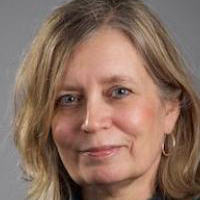Keynote speakers – NNRME2021
Keynote speakers

Associate Professor Randall Everett Allsup, Columbia University, New York (US)
Randall Everett Allsup, Ed.D. is Associate Professor of Music and Music Education, and he holds a dual appointment as Professor of Music Education at the Arts College of Xiamen University, China. Allsup research within the challenges of reconceptualizing music pedagogy, with a special interest instrumental and popular music.
What I Learned About Teaching from Covid-19. Or, Lessons from Reluctant Remote Learning
Thrown into emergency remote teaching by a global pandemic – in the middle of spring semester, no less – music teachers were faced with ever-changing challenges. We were told to be resilient and flexible. We were told to adapt. But unless we were already teaching on-line, music tuition through Zoom made no sense.
After the shock of moving my music courses to an on-line format, and with no small degree of alleged resilience, I began to look for silver linings. I wondered if there were lessons for me, or lessons for the music education community. I experimented with my curriculum, took notes, and never ceased hoping for a return to “normal”.
In this presentation, I will share insights that are idiosyncratic and possibly generalizable. Remote teaching may allow us, I think, to rescue forgotten pedagogies like portfolio-based learning or advance a more radical politics through creative teaching. Health and well-being are on our minds. So is the prevalence of trauma and loss. I wonder about the impossibility of what we call teacher training or teacher preparation (I was not prepared for this). Processes I once held dear like dialogue are shifting, and I think about what it means to witness as much as talk. Finally, the idea of curriculum-as-assemblage is newly realized outside the strictness of linear time.

Professor Monica Lindgren, University of Gothenburg (SE)
Monica Lindgren (PhD) is professor of music education and the head of research and postgraduate education within music and arts education at the Academy of Music and Drama. She has a background as a music teacher in elementary education and municipal school of music and arts as well as teacher education programs at different universities in Sweden. She is currently involved in a research project financed by the Swedish Research Council 2018-2020: "Reviewing on whose terms? Assessment, conceptions of quality and legitimation of attainment test to music teacher education".
What is good music education? Challenging epistemological assumptions in discourses of quality in music education
Quality in music education nowadays is, like all education, strongly governed by standards for quality assurance. These quality processes have been criticized for being part of the new public management mind set. From a discursive perspective the endeavor to implement quality assurance in education can be read as a disciplining technology. Parallel to this management, the concept of quality in music education is also strongly governed by institutionalized practices: as formalized education in preschools, schools, culture schools and universities, or as informal learning spaces in spare time settings or through internet. These institutionalized practices, here understood as legitimate social groupings or discursive practices, are grounded in shared concepts and routines which create antagonistic ideas of quality in music education. Based on previous and ongoing research in Swedish educational settings I will in this presentation unfold, problematize and challenge epistemological assumptions in hegemonic discourses of quality in today's music education.
